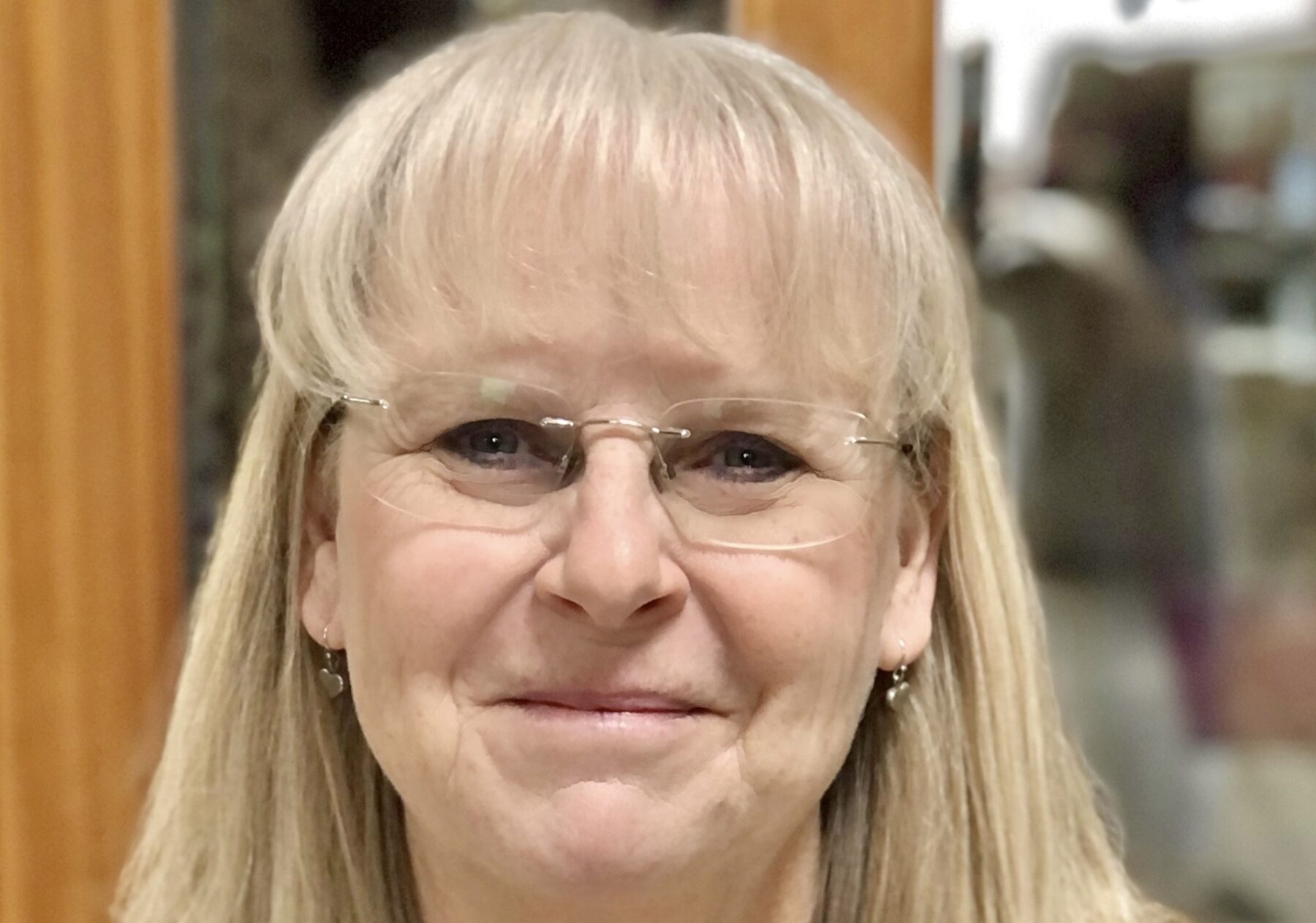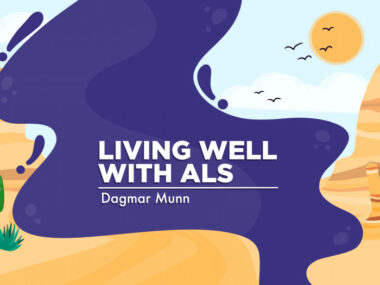Guest Voice: Often, ALS requires unimaginably difficult decisions
When my husband decided he couldn't go on, it was one thing he could control
Written by |

Anita Newton and her husband, Craig, faced difficult decisions toward the end of his life with ALS. (Courtesy of Anita Newton)
Anita Newton is a retired science teacher who lives near Bristol, England. She taught chemistry for 30 years before retiring when her husband, Craig, was diagnosed with ALS. Her interests range from pickleball, badminton, and table tennis to reading, writing, painting, and crafting. She also enjoys traveling and is currently learning Norwegian.
My husband, Craig, knew enough about ALS — from which he died in 2022 — to know that as the disease progressed, he’d have less control over his body and, to some extent, his decisions. We discussed his end-of-life plan so that I’d know his intentions. He made it clear that he didn’t want any interventions of any kind. He wanted control of his life and death.
To understand his thinking, you have to understand what Craig was like. He was lively, gregarious, outspoken, opinionated, and chatty — a real character. He loved to talk and connect with people and debate current affairs. Others were drawn to his warmth and sincerity.
He didn’t want anything to prolong his life because he thought it would affect how he was with his family. He wanted our memories of him to be as positive as possible. He was aware that he wouldn’t be here to support and comfort us when he died.
His decision to have a feeding tube placed was unexpected, but he wanted to be able to receive medication while maintaining the right to refuse food. He got as far as the operating room when this decision was reversed for us.
I had settled in with a book in his room when a nurse told me I was needed to translate because the doctors couldn’t understand Craig. His atrial fibrillation had gone haywire, and the doctors were worried he’d have a heart attack during surgery. They wouldn’t continue with the procedure.
Craig had been firm from the start that when he could no longer communicate and I could no longer understand him, he didn’t want to be here anymore. He wanted his life to end on his terms with some dignity and control. The awful dilemma of wanting to be at peace but also not wanting to leave loved ones is something several ALS sufferers face.
Craig decided to exercise that control and over time reduced his calorie intake. Swallowing had become difficult for him, and mashed-up food was the norm. He said he’d come full circle when he started eating baby food again. His sense of humor remained intact until the end.
Craig was completely dependent on me for everything, and doing these steps his way allowed him to have some control, even when he had none in any other part of his life. I supported his decision and never would have put up barriers. It was about him and what he wanted, not about me. I’d have to deal with my feelings after he was gone.
In truth, I struggled with his decision more than he did, but not until a year later. I began to wonder, “Did he not love me enough to stay a bit longer?” Inside, though, I believed that the quality of life he would’ve had would’ve destroyed his spirit and identity.
One evening, Craig announced that he’d be having his last meal. He chose salmon and mashed potatoes, his favorite.
I remember it so clearly. It’s funny how some things stay in your memory so vividly. It was the beginning of the end, and I knew that. I stood in the kitchen looking out the window, trying hard to regain control of my emotions before I went back to him. I always tried to be cheerful and smiley with him, never letting him see the upset side of me. I can’t say I was always successful, and sometimes we cried together.
Things happened quickly after that. Craig stopped eating on a Sunday and took only drinks on Monday. He was admitted to hospice on Tuesday. There, he refused to drink as well. He told me when we got settled that he was going to die the following Saturday.
Craig spent the next few days saying goodbye to friends and family. He died peacefully that Sunday evening, the way he wanted. He just drifted away.
Having had Craig in my life, however short our time together was, was the most important thing. Life will never be easy without him, but in time, it’ll get easier to bear, or so I’m told. I’ve read many things about grief over the past three years, and some resonate more than others.
I like to think that I’m always carrying Craig with me. He’s by my side, enjoying my successes and failures. He’s present, even if I can’t touch him. I’m not religious in the true sense of the word, but part of me believes he is watching, encouraging, and gently pushing me forward. We all have our own ways of coping, and if it works, that’s all that matters.
To submit your own Guest Voice for publication on ALS News Today, please email your idea to our columns manager at [email protected] with the following included in the subject line: “Guest Voice: ALS News Today.”
Note: ALS News Today is strictly a news and information website about the disease. It does not provide medical advice, diagnosis, or treatment. This content is not intended to be a substitute for professional medical advice, diagnosis, or treatment. Always seek the advice of your physician or other qualified health provider with any questions you may have regarding a medical condition. Never disregard professional medical advice or delay in seeking it because of something you have read on this website. The opinions expressed in this column are not those of ALS News Today or its parent company, Bionews, and are intended to spark discussion about issues pertaining to ALS.







Lucille Pranitis.
There are no words to make any person feel good about the decisions that come along with ALS. I too lost my soul mate a year and a half ago.
Like your husband he was full of life and energy and he also wanted to take charge of his final days. I also supported his decisions but it doesn’t make it any easier I continue to wish for him and more time together. Know you are not alone in this grief process Wishing you love and peace
Kenneth Stufko
An Excellent article covering many aspects of ALS degradation. .... I can relate to all of them and feel I too, am struggling with those very difficult "final" decisions. I live in NJ which is an M.A.I.D. state (medical aid in dying) and have already received my script to permit me to eventually elect when enough is enough. And that is the decision that I struggle with. My Dr., when asked, stated I will know when it is time to employ the MAID directive, and while some portions of the day (mornings) make me believe I am ready, others do not. Being an optimist, it is so difficult to deal with the pessimistic degradation of ALS. This is just a lousy disease! ... thanks again for your article.